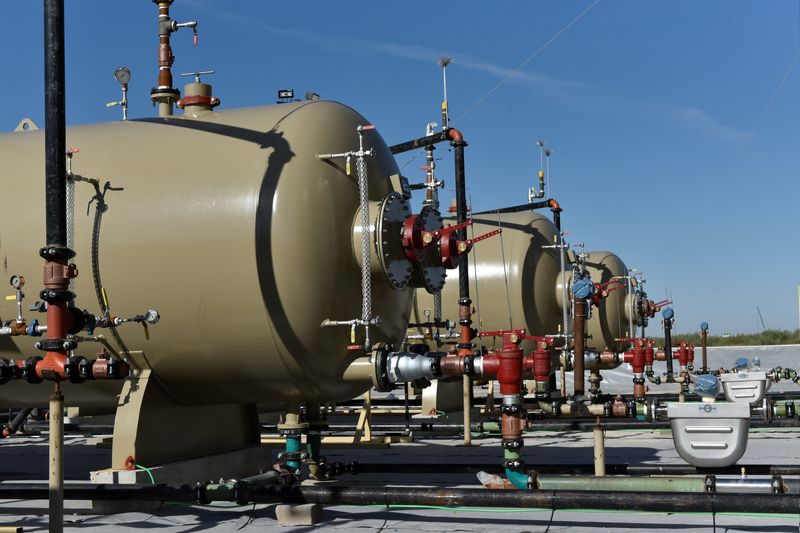By Peter Nurse
Investing.com -- Oil prices rose Friday, on course to post a weekly gain, on expectations that Russia will cut its supply in the new year while a winter storm hits large parts of the United States.
By 05:05 ET (10:05 GMT), U.S. crude futures traded 2.1% higher at $79.14 a barrel, while the Brent contract rose 2.8% to $83.27 a barrel.
The crude benchmarks are on track to post a second consecutive weekly gain, with Brent up 4.6% and WTI up 5.6%, rebounding after hitting a one-year low earlier this month as recession fears weighed on the market.
Supporting the market Friday were comments from Russia's Deputy Prime Minister Alexander Novak, who said in an interview with Rossiya-24 TV that Moscow may reduce its oil production by 500,000-700,000 barrels a day in response to the Group of Seven's price cap on Russian crude exports.
The market has been waiting for Russia's response to the introduction of the price cap policy, which has imposed a $60-a-barrel ceiling on Russian crude exports, trying to reduce Moscow's income flow as it conducts its war in Ukraine while still keeping up supply to the global market.
President Vladimir Putin said on Thursday that he will sign a decree on the nation's response to the price cap on Monday or Tuesday.
Also of note is the first major winter storm of the season hitting large parts of the U.S., resulting in the cancellation of thousands of flights and potentially disrupting motorists' travel plans as the holiday period gets underway.
This is likely to result in falls in demand for gasoline and jet fuel but could also boost demand for heating oil, making the overall impact difficult to gauge at this point.
Still, oil is poised to end a volatile year only modestly higher as surging COVID-19 cases in China, the largest crude importer in the world, and concerns about a global recession in the wake of aggressive interest rate hikes have limited oil's price gains.
"The oil market's biggest wildcard is China and optimism is still strong that the reopening will continue and eventually lead to more demand," OANDA analyst Edward Moya said.
